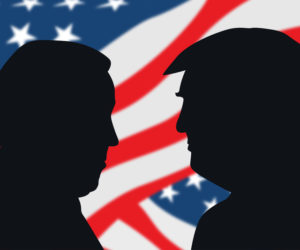The Goodreads/Amazon story is a great example of why concentrated economic (market) power is not in the consumer’s long-run best interest.
In this case, Amazon wants to protect its bundled product, the Kindle. The Kindle is to Amazon as Office or MSIE are to Microsoft, extensions of an infrastructure franchise. Over at Google, it’s two pronged: Google+ and Android. At Apple, it’s the iTunes ecosystem.
Two of those businesses – Google and Amazon – engineered their dominance in part through the use of APIs, providing free access to their data in order to propagate their services (and brands). Now that they are super-major players, they are rethinking (restricting access to) those same APIs. The result is pissing off developers (Google’s changes in free services) and causing partners to bail (Goodreads and Amazon). In both cases, the alternatives are not straightforward or 100% substitutable. The result is friction of the economic kind and a diminished marketplace for consumers.
This is not what tech-opia envisioned.
But it is the nature of digital goods, which are more like public goods than retail goods made of atoms. Digital goods also have network effects which lead to a winner-take-all market structure.
Public goods, like software and information, have high fixed costs and really low marginal costs. This means the cost of creation is wrapped up in the first product sold. Everything else? Marginal costs of replication and distribution, which are (relatively) low. In the case of digital goods, approaching zero low.
Public goods are non-rival. You and I can both “own” the good at the same time, without duking it out to see who gets to drink a single bottle of, for example. This means we can both buy a Kindle book without any impact on a warehouse and only marginal impact on Amazon’s server farm.
And they are non-excludable. The owner has a hard time making everyone pay because copies are perfect and easily created; DRM is the attempt to make digital goods act more like non-digital ones. This is the principle underlying SOPA and PIPA and ACTA (and all the laws that came before).
The firms that supply public goods — such as water, sewer, electricity, telephone infrastructure (wires), cable (wires) — have historically been regulated because, contrary to common mantra, society is better off when there is only one set of expensive infrastructure : not 10 cable companies digging up the streets in NYC but none interested in Ellesnburg WA (because the population density is insufficient). Hence the term, regulated monopoly.
Compete, instead, on providing services over that infrastructure. We got used to this system when alternatives to AT&T’s long distance service were finally available. And the cost of long distance calls plummeted.
Alternatively, citizens decide to supply some services themselves — like fire departments, armies, roads and lighthouses — through their governments. Sometimes ROI isn’t the right measure.
Am I arguing that the government should run Amazon or Google? No. But I am pointing out — arguing — that the nature of digital goods is different. The economics are different. Laissez faire works best when markets are perfect; these markets clearly are not.[1]
The question is what form of regulation/oversight should citizens demand, not whether there should be any. Prohibiting/regulating bundling as a way to extend reach might be a good step. It sure would have been a smart move in the finance sector, now wouldn’t it? [2]
[1] See Adam Smith, not American political rhetoric. Smith abhorred monopolies.
[2] See repeal of Glass-Steagall and other legislation/regulation that allowed banks to bundle services under one shell, erh roof.
:: wiredpen permalink
:: posted first at Google+
:: Follow me on Twitter!
Known for gnawing at complex questions like a terrier with a bone. Digital evangelist, writer, teacher. Transplanted Southerner; teach newbies to ride motorcycles. @kegill (Twitter and Mastodon.social); wiredpen.com
















